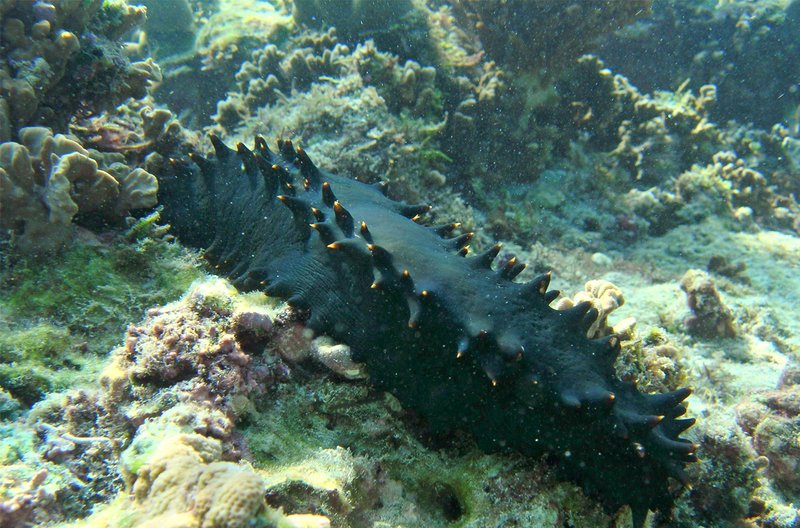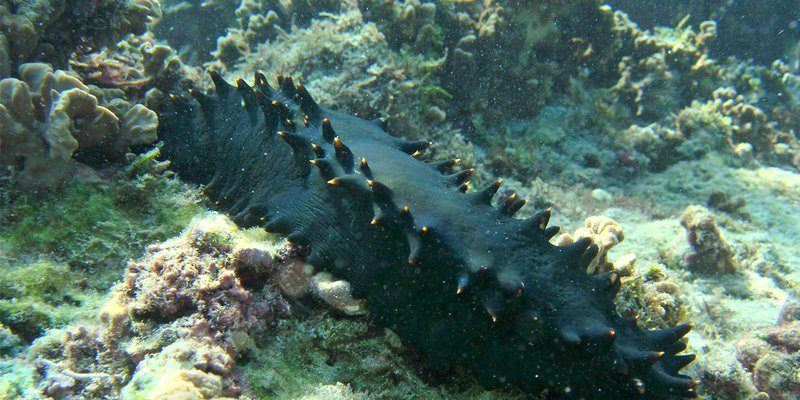
So, are sea cucumbers endangered? Unfortunately, the answer is yes for several species. They’re being overfished due to rising demand in international markets, primarily for use in Asian cuisine and traditional medicine. Let’s dive into what’s happening with these fascinating creatures and what conservation efforts are in place to help them thrive again.
What Are Sea Cucumbers?
To kick things off, let’s discuss what sea cucumbers actually are. Belonging to a group of marine animals known as echinoderms, which includes starfish and sea urchins, sea cucumbers have a leathery skin and elongated, cylindrical bodies. They can vary widely in size, with some reaching lengths of up to three feet!
Think of sea cucumbers like underwater vacuum cleaners. They feed on tiny particles in the sediment, including algae, plankton, and dead organisms. By doing so, they help keep the ocean floor clean and contribute to a healthy marine ecosystem. Honestly, without them, the ocean would be a much messier place!
Why Are Sea Cucumbers Endangered?
So, what’s putting sea cucumbers at risk? The primary threat comes from overfishing. In many parts of the world, especially Asia, they are considered a delicacy, often referred to as “bêche-de-mer.” The demand for these creatures has skyrocketed, leading to a significant decline in their populations.
Additionally, habitat destruction plays a role. As coastal development increases and pollution spreads, the natural habitats where sea cucumbers thrive are being damaged. This double whammy of fishing pressure and habitat loss makes it harder for their populations to bounce back. You might be wondering how severe the situation is; some studies estimate that certain species have decreased by over 90% in certain regions!
Current Conservation Efforts
Fortunately, not all hope is lost. Conservation groups and governments are stepping up to address the plight of sea cucumbers. Several countries have implemented fishing regulations to help protect these creatures. For instance, some have set size limits on the sea cucumbers that can be harvested, while others have seasonal bans to allow populations to recover.
Furthermore, researchers are working tirelessly to understand sea cucumber biology and their role in the ecosystem. Programs focused on aquaculture are also gaining traction, which aims to farm sea cucumbers sustainably rather than relying solely on wild catches. This could provide a steady supply without further stressing natural populations.
Important Species of Sea Cucumbers
Not all sea cucumbers are created equal when it comes to their conservation status. Some species are critically endangered while others seem to be holding steady. Here’s a quick look at a few notable species:
- Holothuria fuscogilva: Also known as the brown sea cucumber, this species is highly sought after and has witnessed severe population declines.
- Thelenota ananas: Known for its distinct, pineapple-like appearance, the coconut sea cucumber is another species facing significant threats due to overfishing.
- Stichopus japonicus: Often found in the shallow waters of East Asia, this species has seen its numbers drop dramatically, contributing to its endangered status.
These examples highlight the diversity of sea cucumbers and the urgent need for targeted conservation efforts.
How You Can Help
You might be thinking, “What can I do to help sea cucumbers?” Here are a few simple steps that can make a big difference:
1. Support Sustainable Seafood: When choosing seafood products, opt for those that are sustainably sourced. Look for certifications that indicate responsible fishing practices.
2. Raise Awareness: Share what you’ve learned about sea cucumbers and their plight. The more people know, the more likely they are to take action.
3. Reduce Plastic Use: Pollution significantly impacts marine life. By reducing plastic usage and participating in beach clean-ups, you can help keep the oceans cleaner for all creatures, including sea cucumbers.
4. Donate to Conservation Organizations: Many groups focus on marine conservation and directly help sea cucumbers. Your contributions can help fund vital research and rehabilitation projects.
Final Thoughts on Sea Cucumbers and Conservation
Sea cucumbers might not be the stars of ocean documentaries, but their role in marine ecosystems is crucial. As we’ve seen, their populations are declining, largely due to overfishing and habitat destruction. However, with the right conservation steps, there’s still hope for these unique creatures.
By supporting sustainable practices and raising awareness, you can play a part in ensuring that future generations can appreciate the wonders of the ocean, including the often-overlooked sea cucumber. So, next time you think of the ocean, remember, it’s not just about the flashy fish and graceful dolphins; sometimes, it’s the quiet, squishy heroes that matter most.

